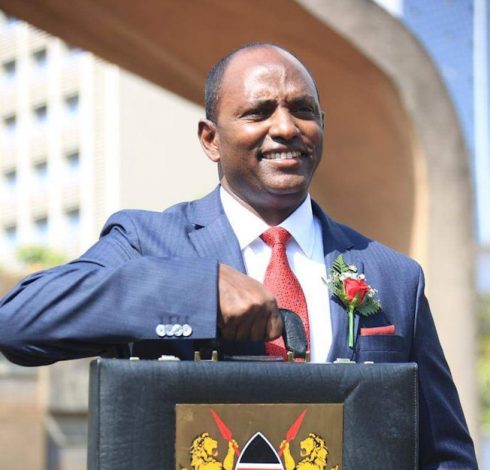Kenya’s National Treasury on Thursday is expected to table an estimated Ksh.3.6 trillion budget for the year 2021-22.
Within the overall budget estimates, the national government will be allocated Ksh 1.96Tn, Consolidated Fund Services at Ksh 1.33Tn and equitable revenue share to counties at Ksh 370.0Bn.
According to Genghis Capital, the country’s total revenue in the next fiscal year is expected at Ksh 2.04Tn; of which ordinary revenue is expected at Ksh 1.78Tn and Appropriationsin-Aid (AiA) expected at Ksh 263.0Bn.
Grants are expected at Ksh 62.0Bn, bringing revenue and grants to Ksh2.10Tn.
“With total spending at Ksh 3.66Tn, this translates into Ksh 1.56Tn in gross financing of which Ksh 608.9Bn (debt redemptions) and Ksh 952.9Bn (net financing).”
According to the National Treasury, the Ksh 3.632 trillion budget aims to strike a balance between stimulating economic recovery and responding to the health challenges of the COVID-19 pandemic.
The year’s Finance Bill 2021 seeks to amend the Income Tax, the VAT Act, the Excise Duty Act, the Tax Procedures Act, the Miscellaneous Fees and Levies Act, as well as the Capital Markets Act, the Central Depositories Act, the Kenya Revenue Authority Act, the Insurance Act and the Retirement Benefits Act, to facilitate the realisation of the budget proposals.
How Regulatory Overreach is Impeding Kenya’s Economic Growth
“We expect the Budget and Appropriations Committee (BAC) to table its recommendation report on the budget estimates while the Finance and National Planning is anticipated to table its recommendation report on the Finance Bill 2021,” Genghis Capital said as National Assembly resumed its sittings Tuesday.
Public Debt
The latest data from the Central Bank shows the country’s domestic debt rose to KSh3.67 trillion on 28th May 2021 from KSh3.63 trillion on 30th April 2021.
Treasury bonds increased to KSh2.83 trillion from KSh2.80 trillion. Treasury bills jumped to KSh759 billion from KSh747 billion on 30th April 2021.
Overdraft at the CBK fell to KSh60.17 billion at the end of May compared to KSh65.84 billion at the end of April this year.
51.45 per cent of the government domestic debt was held by Kenyan commercial banks, 30.59 per cent by pension funds, 6.64 per cent by insurance companies, 5.43 per cent by state corporations, and 5.9 per cent by other investors.
In their Pre-budget analysis PKF, an audit firm, proposes the government adopts a long-term and cogent tax policy.
According to the auditors, Kenya’s tax statutes are littered with annual/bi-annual amendments.
“Besides creating room for additional tax collection, most of these changes in tax lack a philosophical orientation. In some instances, taxes such as the betting tax which was scrapped in 2020 is now proposed to be re-introduced just one year down the line!
For instance, the minimum turnover tax was introduced by the Finance Bill 2020. Subsequently, this has been suspended by the High Court pending a full hearing on its constitutionality.
Source | Genghis Capital, Central Bank, PKF





1 Comment
Pingback: Kenya's Fiscal Deficit at 7.5% of GDP in 2021-22: Treasury